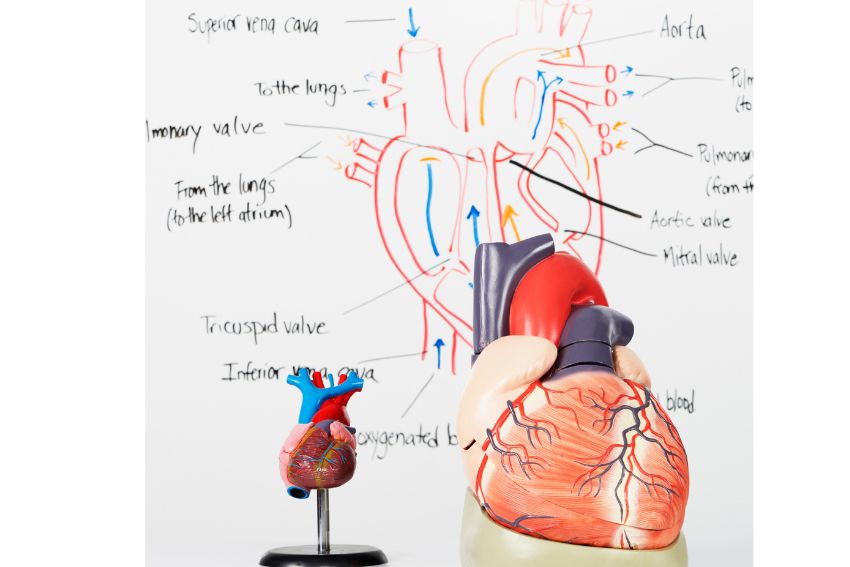Pearson Edexcel
Paper 1B
| Question Paper | Mark Scheme |
| June 2019 | June 2019 |
| January 2020 | January 2020 |
| November 2020 | November 2020 |
| January 2021 | January 2021 |
| June 2021 | June 2021 |
| November 2021 | November 2021 |
| January 2022 | January 2022 |
Paper 1BR
| Question Paper | Mark Scheme |
| June 2019 | June 2019 |
| January 2020 | January 2020 |
| November 2020 | November 2020 |
| January 2021 | January 2021 |
| January 2022 | January 2022 |
Paper 2B
| Question Paper | Mark Scheme |
| June 2019 | June 2019 |
| January 2020 | January 2020 |
| November 2020 | November 2020 |
| January 2021 | January 2021 |
| June 2021 | June 2021 |
| November 2021 | November 2021 |
| January 2022 | January 2022 |
Paper 2BR
| Question Paper | Mark Scheme |
| June 2019 | June 2019 |
| January 2020 | January 2020 |
| November 2020 | November 2020 |
| January 2021 | January 2021 |
| January 2022 | January 2022 |
FAQ About IGCSE Biology

What is IGCSE Biology
IGCSE Biology refers to the International General Certificate of Secondary Education (IGCSE) course in Biology. It is an internationally recognised qualification that covers the fundamental principles and concepts of biology. The IGCSE Biology course is designed for students typically in the age range of 14 to 16.
IGCSE Biology focuses on building a solid foundation in biological sciences by exploring topics such as cells and cell processes, genetics, human anatomy and physiology, plant biology, ecology, and evolution. The course aims to develop students’ understanding of the living world, its diversity, and the processes that govern it.
The IGCSE Biology curriculum includes theoretical knowledge as well as practical skills. Students learn about biological concepts through classroom instruction, laboratory experiments, and hands-on activities. They develop scientific inquiry skills, critical thinking abilities, and an understanding of the scientific method.
Assessment for IGCSE Biology is typically done through written examinations, which test students’ knowledge, understanding, and application of biological concepts. Some examination boards may also include practical assessments or coursework components to evaluate students’ practical skills and investigative abilities.
What topics are covered in IGCSE Biology?
IGCSE Biology covers a wide range of topics that provide a comprehensive understanding of the fundamental principles and concepts in biology. The specific topics covered may vary slightly depending on the exam board and curriculum, but here are some common areas of study in IGCSE Biology:
Cells and Cell Processes
- Cell structure and function
- Movement of substances in and out of cells
- Enzymes and their role in biological reactions
- Respiration and photosynthesis
Classification and Organisation of Living Organisms
- Classification of organisms and the hierarchical system
- Kingdoms of living organisms
- Relationships and interactions between organisms in ecosystems
Human Anatomy and Physiology
- Structure and function of different body systems (e.g., digestive, respiratory, circulatory)
- Coordination and control in humans (nervous and hormonal systems)
- Reproduction and development in humans
Genetics and Inheritance
- DNA structure and replication
- Mendelian genetics and inheritance patterns
- Genetic engineering and biotechnology
Plant Biology
- Structure and function of plant organs (roots, stems, leaves, flowers)
- Transport of substances in plants (water, minerals, sugars)
- Plant reproduction and growth
Ecology
- Interactions between organisms and their environment
- Food chains and food webs
- Population dynamics and human impact on ecosystems
Evolution and Natural Selection
- Principles of evolution and the role of natural selection
- Evidence for evolution
- Speciation and adaptation
Human Health and Disease
- Factors affecting human health
- Common diseases and their causes
- Immunity and vaccination
These topics provide a solid foundation in biology and offer students a comprehensive understanding of the living world, its diversity, and the processes that govern it. It’s important to consult the specific curriculum or syllabus provided by your exam board or educational institution for the precise details of topics covered in the IGCSE Biology course you are undertaking.
What are the benefits of studying IGCSE Biology?
Studying IGCSE Biology offers several benefits that extend beyond acquiring knowledge of the subject itself. Here are some key advantages of studying IGCSE Biology:
Solid Foundation in Biological Sciences
- IGCSE Biology provides a strong foundation in biological sciences by covering essential concepts, principles, and processes. It helps students develop a comprehensive understanding of the living world, its diversity, and the mechanisms that govern life.
Gateway to Further Studies
- IGCSE Biology serves as a stepping stone for students interested in pursuing further studies in biology or related fields. It lays the groundwork for advanced courses, such as A-level Biology or IB Biology, which are often prerequisites for higher education programs in medicine, healthcare, biological research, and environmental sciences. Strong knowledge of IGCSE Maths is also a must for many of these career paths, as mathematical skills are needed for statistical analysis, data interpretation, and quantitative research in biology.
Scientific Literacy and Critical Thinking Skills
- Studying IGCSE Biology cultivates scientific literacy, enabling students to understand and evaluate scientific information, theories, and research. It promotes critical thinking skills, problem-solving abilities, and logical reasoning, which are valuable in various academic disciplines and real-life situations.
Understanding of Human Health and the Natural World
- IGCSE Biology equips students with knowledge of human anatomy and physiology, diseases, and their causes. This understanding helps them make informed decisions regarding their own health and well-being. Additionally, studying biology enhances awareness of environmental issues, ecological relationships, and sustainability, fostering a sense of responsibility towards the natural world.
Practical Skills and Experimental Design
- IGCSE Biology incorporates practical activities and experiments, allowing students to develop essential laboratory skills, including data collection, analysis, and scientific investigation. These practical skills enhance their ability to design experiments, make accurate observations, and draw valid conclusions.
Transferable Skills
- Studying IGCSE Biology fosters transferable skills that are valuable across various domains. These skills include critical thinking, problem-solving, analytical reasoning, data interpretation, written and verbal communication, teamwork, and time management. These skills can benefit students in future academic pursuits and professional careers.
Career Opportunities
- IGCSE Biology opens up a range of career opportunities in fields such as medicine, healthcare, biotechnology, research, environmental sciences, forensic sciences, teaching, and more. It provides a strong foundation for pursuing diverse pathways, from medical professions to ecological conservation or genetic research.
It’s important to note that the benefits of studying IGCSE Biology go beyond the subject matter itself. The skills and knowledge acquired through this course contribute to personal growth, scientific literacy, and a broader understanding of the world, which can positively impact various aspects of students’ lives.
How can I prepare for the IGCSE Biology exams?
Preparing for IGCSE Biology exams requires a systematic approach and thorough revision of the course content. Here are some key steps to help you prepare effectively:
Understand the Exam Format and Syllabus
- Familiarise yourself with the exam format, including the types of questions and the time allocation for each section. Obtain the official syllabus or curriculum document provided by your exam board or educational institution to understand the topics and learning objectives that will be assessed.
Create a Study Plan
- Develop a study plan that outlines the topics you need to cover and allocate sufficient time for each. Consider your strengths and weaknesses to allocate more time to challenging areas. Set specific goals and create a realistic study schedule to ensure consistent and structured revision.
Review the Course Material
- Review your class notes, textbooks, and other relevant study resources to reinforce your understanding of the key concepts and information covered in the syllabus. Make concise notes, diagrams, and summaries to aid your revision process. Here are some revision techniques you can try out.
Practise with Past Papers
- Past papers are invaluable resources for exam preparation. Obtain and practice with a variety of past papers from previous years. This helps you become familiar with the exam structure, question styles, and time management. Analyse your answers, identify areas for improvement, and review the marking schemes to understand the expected level of detail and accuracy in your responses. The same approach works well for other science subjects – many students find that regular practise with IGCSE Physics past papers helps them build similar skills.
Seek Clarification
- If you encounter any difficulties or have doubts about certain gcse biology topics, don’t hesitate to seek clarification from your teacher, IGCSE Biology or classmates. Engage in discussions, ask questions, and participate in revision sessions to deepen your understanding of complex concepts.
Use Additional Study Materials
- Supplement your revision by utilising additional study materials such as revision guides, textbooks, online resources, and educational websites. These resources often provide concise summaries, practice questions, and interactive learning tools that can enhance your understanding and retention of the subject matter.
Engage in Practical Activities
- Biology involves practical skills and experimental understanding. Take advantage of opportunities to engage in practical activities, experiments, and laboratory work. This will reinforce your understanding of practical concepts, experimental design, and data analysis.
Test Yourself and Review Regularly
- Regularly assess your knowledge and understanding by testing yourself with quizzes, flashcards, or self-made questions. This active recall helps reinforce your learning. Review and revise frequently to ensure that you retain the information effectively.
Stay Healthy and Manage Stress
- Prioritise your physical and mental well-being during the exam preparation period. Get enough sleep, eat nutritious meals, and engage in regular physical activity to stay energized. Manage stress through relaxation techniques, time management strategies, and taking breaks when needed.
Remember, effective preparation involves consistent effort, organization, and a balanced approach to studying. By following these steps and practicing with past papers, you will become more confident, familiar with the exam requirements, and better equipped to perform well in your IGCSE Biology exams.
What career opportunities are available for those who study IGCSE Biology?
Studying IGCSE Biology opens up a wide range of career opportunities in various fields that require a strong foundation in biological sciences. Here are some potential career paths for those who study IGCSE Biology:
Healthcare and Medicine
- Studying IGCSE Biology can be a stepping stone towards pursuing a career in healthcare and medicine. It can lead to professions such as doctors, nurses, pharmacists, medical researchers, healthcare administrators, and medical technologists.
Biotechnology and Pharmaceutical Industries
- The biotechnology and pharmaceutical sectors offer diverse career opportunities for individuals with a background in biology. Roles may include research scientists, laboratory technicians, quality control analysts, clinical research associates, or regulatory affairs specialists.
Environmental Sciences
- IGCSE Biology provides a solid foundation for careers in environmental sciences. Opportunities exist in environmental research, conservation, environmental consulting, ecological assessment, environmental education, and sustainable resource management.
Forensic Sciences
- Biology plays a crucial role in forensic sciences, particularly in areas such as DNA analysis, crime scene investigation, forensic pathology, and forensic toxicology. Graduates can pursue careers as forensic scientists, forensic technicians, or forensic geneticists.
Teaching and Education
- With further education and relevant qualifications, studying IGCSE Biology can lead to teaching careers. Opportunities exist in schools, colleges, and educational institutions as biology teachers, science educators, curriculum developers, or educational consultants.
Biological Research
- Biology graduates can pursue research careers in various settings, such as universities, research institutes, or private companies. They can contribute to advancements in areas like genetics, molecular biology, biotechnology, ecology, or biomedical research.
Agriculture and Food Sciences
- The knowledge gained from IGCSE Biology can be applied in agricultural and food-related industries. Careers in agriculture, crop science, food technology, food safety, or agricultural research are potential pathways for those interested in these fields.
Veterinary Sciences
- For those passionate about animal health and welfare, studying IGCSE Biology can be a stepping stone towards a career in veterinary medicine or veterinary sciences. Veterinarians play a vital role in animal healthcare, research, and public health.
Science Communication and Journalism
- Graduates with a strong foundation in biology can pursue careers in science communication, journalism, or scientific writing. They can work as science writers, science journalists, or communicators in science-related organizations, media outlets, or scientific publications.
These are just a few examples of the career opportunities available to individuals who study IGCSE Biology. The field of biology is diverse and continuously evolving, offering a wide array of paths to explore based on personal interests, further education, and specialization.









